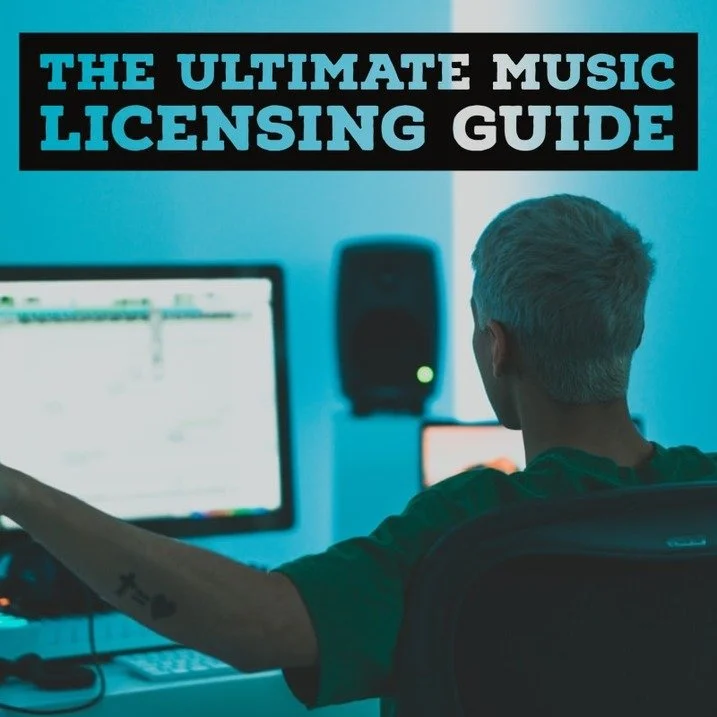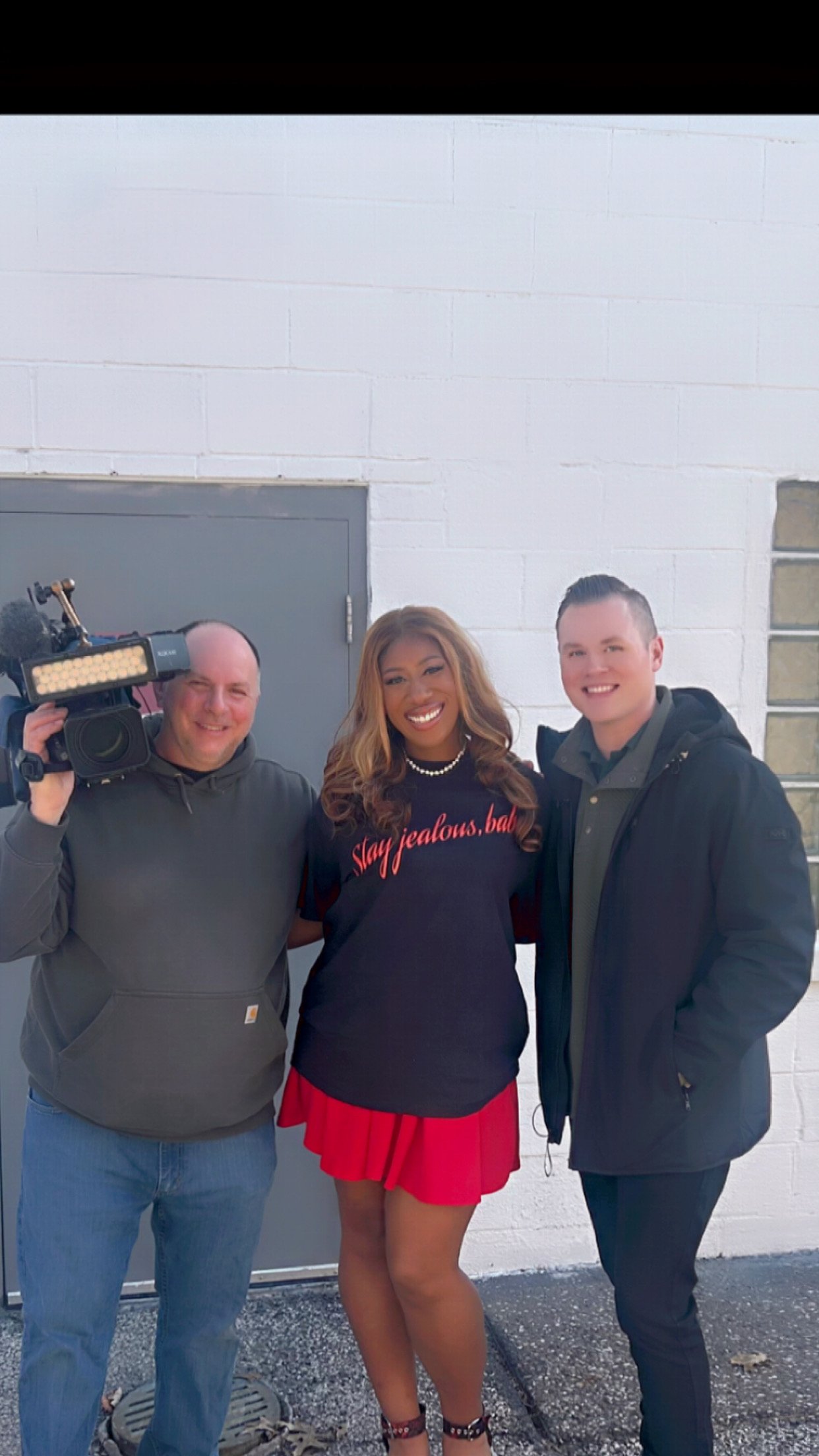Playing The Long Game in Sync Licensing With Brit Fox
Sync licensing is a marathon, not a sprint. Award-winning producer, songwriter, vocalist, and audio engineer Brit Foxshares her journey from local Cleveland projects to high-profile placements with Netflix, ABC, Paramount, Sony, and more. In this episode of the Sync Lab Podcast, Brit reveals the mindset, strategies, and catalog-building approach that helped her turn sync into her main source of income.
🎙 Listen to the Full Podcast Interview
Before we dive in, you can hear this conversation in full on the Sync Lab Podcast:
👉 Listen here on Spotify
The Patience Required for Sync Licensing
If you’re an artist just starting out in sync licensing, you’ve probably asked yourself: How long will it take to get my first placement?
For Brit Fox, the answer was years. She started pitching around 2017 and didn’t see her first placement until about a year later—and even then, it took four to five years before things really picked up.
“It feels like forever,” Brit shared. “Everybody told me, hold on for five years. And they were right. That’s when I really noticed consistent placements.”
Her story is proof of what most industry pros will tell you: sync licensing is a long game.
Building a Creative Routine That Lasts
Success in sync licensing doesn’t happen overnight—and that means artists need a routine that keeps them motivated through the long wait for placements. For Brit Fox, her progress wasn’t just about talent, but discipline and consistency.
“You have to commit to it,” she explained. “Pick time out of your day and do it no matter what. Protect that time, whether you’re writing, networking, or just exploring inspiration.”
To stay on track, Brit developed a repeatable rhythm:
One day a week reserved for sync outreach—emails, follow-ups, metadata, and networking.
Consistent studio time dedicated to songwriting and producing.
Flexibility as a mom and full-time creative, adjusting schedules but never abandoning the routine.
Unlike recording sessions where results are immediate, sync placements often take months or years to surface. That’s why Brit treats her routine like a marathon, not a sprint.
“People respect the 9-to-5 grind,” she noted. “But when you’re creative, you have to protect your own fluid rhythm. That structure kept me motivated during the years before sync became steady income.”
From Local Projects to Global Placements
While Brit’s resume includes placements with Netflix, Hulu, ABC, BET, Sony Pictures, and A24, she says some of her proudest work has been local.
In Cleveland, she contributed music for tourism campaigns, community projects, and film festivals.
“I made it a mission to attend film festivals,” she said. “Meeting directors, crews, and producers locally led to projects that were really meaningful—and opened doors to bigger opportunities later.”
Her journey shows why local networking can be a powerful entry point into sync licensing.
Networking in Sync Licensing: Online and In-Person
When it comes to building a career in sync licensing, networking is just as important as writing great music. For Brit Fox, success has come from embracing both online and offline connections—and knowing how to approach each differently.
In-person networking: Brit thrives at film festivals, industry events, and community projects. “I’m naturally a listener,” she explained. “People just open up to me. I’m the kind of person people start telling their life stories to—and that builds trust fast.” These face-to-face relationships often lead to long-term collaborations, especially with directors, producers, and supervisors who remember the personal connection.
Online networking: The digital world, however, requires a different approach. “You have to over-communicate because emails are stop-and-go,” Brit said. Clear, concise communication—and consistency—are key. By following up respectfully and showing genuine interest in a project’s needs, she’s built credibility with music supervisors, libraries, and publishers across markets.
By balancing both, Brit has created a strong professional network—the very gatekeepers who decide which songs land in film, TV, games, and ads.
A Smarter Approach to Music Supervisors
One thing that sets Brit apart is her respectful and strategic outreach.
Instead of blasting music to everyone, she:
Researches the company or supervisor—their niche, past projects, and needs.
Reaches out without sending music at first.
Creates custom tracks tailored to what they’re looking for.
“I want to solve their problem, not just push my songs,” she said. “If you follow the brief closely, your odds of placement skyrocket.”
This approach has helped Brit grow her catalog while also earning trust in the industry.
The Smarter Way to Pitch Music Supervisors
Breaking into sync isn’t about blasting out tracks—it’s about research, respect, and building trust. Brit Fox takes a strategic approach to pitching that has helped her land placements and grow a powerful catalog.
Here’s how she does it:
Research first. Before sending anything, Brit learns about the company, supervisor, or library—what projects they work on, and what style they need.
Reach out without music. Her first contact is about connection, not sales. “I don’t send music the first time,” she explained. “I ask if they have any needs, then I’ll create something custom.”
Deliver to brief. By following requests exactly, she increases her odds of placement and builds a reputation for reliability.
This method has grown her catalog to nearly 1,000 songs—an asset that keeps generating opportunities long after the initial pitch.
“Even if a track doesn’t get placed, it’s still part of your catalog,” Brit said. “That’s the long game—every song becomes another chance for future income.”
Today, her catalog has become her primary revenue stream, surpassing even her Cleveland recording studio business. For Brit, sync isn’t just about one-off wins—it’s about playing the long game and treating each song as an investment.
Brit Fox’s Advice for Aspiring Sync Artists
For musicians looking to break into music licensing, Brit offers three key takeaways:
Write authentically. “There’s someone out there writing a scene for your story.”
Don’t skip the sad songs. They often lead to the breakthrough tracks.
Play the long game. Every song adds to your catalog and increases your chances.
Listen to Brit Fox
Want to hear Brit’s sound in action? Stream her latest track Hair Out the Air on Spotify:
👉 Listen here
Learn more about Brit at Brit Fox Studios.
more by @xfoxrox





















